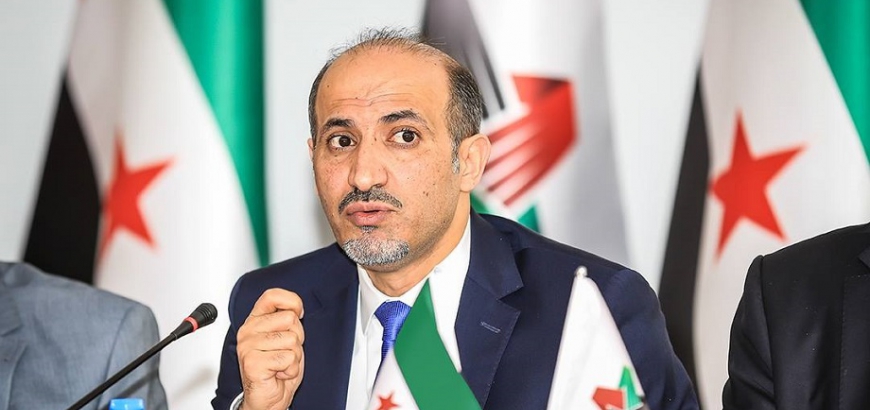The High Negotiations Committee — the biggest political umbrella of the Syrian opposition — is preparing to hold a second conference in the Saudi capital Riyadh in mid-August amid predictions of major changes in its composition, most prominently the resignation of the general coordinator Riad Hijab and the inclusion of new figures.
Among the most important expectations of the upcoming meeting is the departure of Hijab from the HNC. On this, an opposition source close to the Committee said that the most prominent names proposed to replace Hijab were the previous head of the Syrian National Coalition and the current president of the Syria’s Tomorrow Movement, Ahmad Jarba.
The source, who asked not to be named, said that Saudi Arabia and Egypt strongly supported Jarba taking the presidency of the HNC, given his strong relations with both countries, in addition to receiving support from the Russian side.
Since the HNC was formed in December 2015, Jarba has been in competition with Hijab over the role of president.
Different positions
Jarba’s participation in the coming conference conflicts with his position on the HNC, as he is one of the most prominent figures to have attacked and criticized the negotiating body’s performance. In Egypt in December 2016, Jarba described the Committee’s performance as rabble-rousing, according the the official site of Syria’s Tomorrow Movement.
Alsouria Net learned that both Cairo and Moscow want to open the path for Jarba to play a role in the “de-escalation zone” issue, in preparation for a bigger role at a later stage. Jarba effectively had a role in the announcement of the cease-fire in the northern Homs countryside earlier this month on Aug. 3.
Alsouria Net’s correspondent in the Homs countryside, Yaarib al-Dali, quoted the leader of the opposition there, as saying that Jarba had acted as a mediator between Russia and some rebel leaders who agreed to the deal and who indicated that the Russians preferred to work with Jarba because of his loyalty to them.
Recently, Jarba has strengthened his contacts with Russia and Egypt and praised the role of the two countries whom he considered to be making positive strides to reach a solution in Syria. There was no mention of the massacres which Russian warplanes have carried out in Syria, and the Egyptian political positions which are in harmony with Russian policies around Syria and are in the interests of President Bashar al-Assad.
In a press conference in Cairo on Saturday, Jarba said that “Egypt will have a major and positive role in the coming stage and it has not stained its hands with blood in Syria.” He added: “The strong relations between Russia and Egypt have facilitated reaching a deal [the de-escalation deal in Homs countryside].”
“After discussions it has become clear that the shortest route to reaching a solution in Syria is communication with Russia,” Jarba said.
Another Syrian opposition member speaking to Alsouria Net on the condition of anonymity said that Jarba was dealing with Syria and the countries active there based on the changes in the international orientation around the solution in Syria.
Media reports have said that in his recent meeting with Hijab, Saudi Foreign Minister Adel al-Jubeir noted that Assad would remain in power during the transitional stage and that the opposition must deal with this reality — which the Saudis denied on Sunday.
The opposition member said that among the options currently being put forward was the establishment of a joint government headed by the regime with the participation of some Syrian opposition members, agreeing to work under the 2012 constitution drafted by the regime. The source added it was likely that vice presidents would be also selected. “I expect that Jarba or Nasser al-Hariri would accept taking this position,” the source said.
Previously on Tuesday the Italian AKI agency quoted unnamed sources as saying that Hijab had told his inner circles that he preferred to distance himself from the High Negotiations Committee because he did not want to bear responsibility for the inappropriate solutions drafted by the great powers which attempt to impose these solutions on the HNC. He pointed to the inability of the negotiations body to reject these demands because of their various contradictions, disputes and differences in ideology and vision.
This article was edited by The Syrian Observer. Responsibility for the information and views set out in this article lies entirely with the author.


